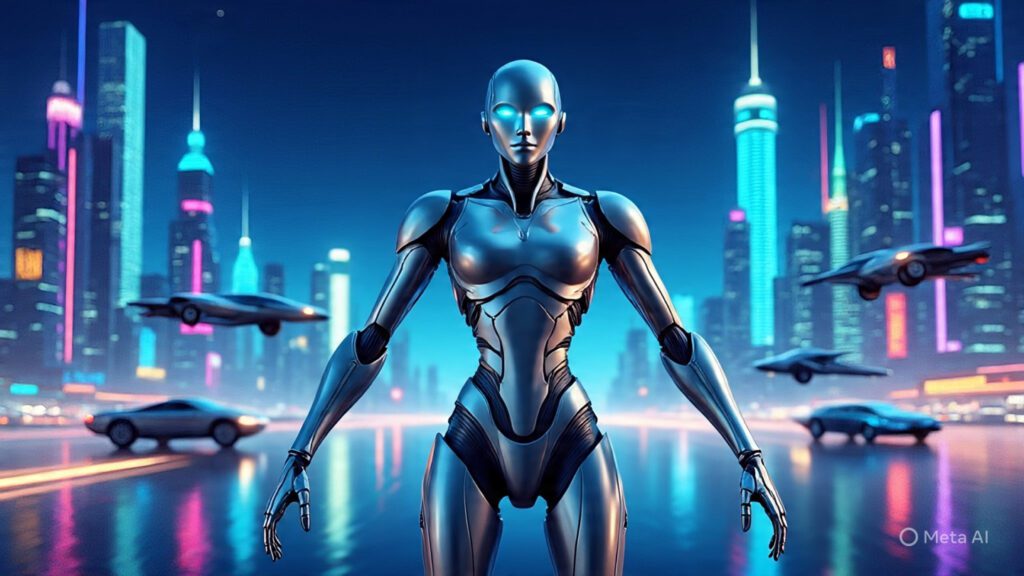The Rise of Autonomous Agents: AI Taking Over Repetitive Tasks
The year is 2025, and the landscape of work is being fundamentally reshaped by the proliferation of autonomous agents. These AI-powered entities are no longer confined to the realm of science fiction; they are actively being deployed across diverse industries, automating complex and repetitive tasks with unprecedented efficiency and accuracy. From customer service to data analysis and manufacturing, autonomous agents are poised to revolutionize how businesses operate and how individuals spend their time. This article delves into the development, deployment, and impact of these game-changing technologies.
What are Autonomous Agents?
At their core, autonomous agents are artificial intelligence systems designed to perceive their environment, make decisions, and take actions to achieve specific goals without explicit human instruction. They differ from traditional automation in their ability to adapt to changing circumstances and learn from experience, making them suitable for tasks that require a degree of flexibility and problem-solving.
These agents can manifest in various forms, from software bots handling customer inquiries to robotic systems managing warehouse logistics. The key characteristic is their autonomy – the ability to operate independently and intelligently.
The Rapid Growth of Autonomous Agent Adoption
Several factors are driving the rapid adoption of autonomous agents. Businesses are increasingly seeking ways to improve efficiency, reduce costs, and enhance customer experiences. Autonomous agents offer a compelling solution by automating tasks that are time-consuming, error-prone, or require specialized skills. Furthermore, advancements in AI, machine learning, and robotics have made it easier and more cost-effective to develop and deploy these agents.
Recent statistics highlight this growth:
- A 2024 report by Gartner predicted that over 70% of organizations will be using some form of autonomous agent technology by 2027 (Source: Gartner, 2024).
- According to a 2023 study by McKinsey, companies deploying autonomous agents have seen a 20-30% reduction in operational costs (Source: McKinsey, 2023).
- Research from Statista in early 2025 indicates the global market for autonomous agents is projected to reach $80 billion by 2030, demonstrating a significant compound annual growth rate (CAGR) (Source: Statista, 2025).
Applications of Autonomous Agents Across Industries
Autonomous Agents in Customer Service
One of the most visible applications of autonomous agents is in customer service. Chatbots powered by AI are now capable of handling a wide range of customer inquiries, from answering frequently asked questions to resolving complex issues. These agents provide 24/7 support, reduce wait times, and free up human agents to focus on more challenging cases. Learn more about the future of AI in customer service here.
Data Analysis and Autonomous Agents
Autonomous agents are also transforming data analysis. These agents can automatically collect, process, and analyze large datasets, identifying trends and insights that would be impossible for humans to uncover manually. This capability is particularly valuable in industries such as finance, marketing, and healthcare. “The ability of autonomous agents to sift through vast amounts of data and identify actionable insights is a game-changer for businesses,” says Dr. Anya Sharma, AI Researcher at the Institute for Advanced Technologies.
Manufacturing and the Role of Autonomous Agents
In manufacturing, autonomous agents are being used to automate tasks such as quality control, inventory management, and robotic assembly. These agents can work alongside human workers, improving efficiency and reducing the risk of errors. Check out this article on robotic assembly lines for more information here.
Other Applications
Beyond these key areas, autonomous agents are finding applications in logistics, transportation, healthcare, and even agriculture. The potential is vast, and we are only beginning to scratch the surface of what these technologies can achieve. For a deeper dive into the ethical considerations, see this resource: World Economic Forum on AI Ethics.
Challenges and Considerations
While the potential benefits of autonomous agents are significant, there are also challenges and considerations that need to be addressed. These include:
- Ethical concerns: Ensuring that autonomous agents are used ethically and responsibly is crucial. This includes addressing issues such as bias, transparency, and accountability.
- Job displacement: The automation of tasks by autonomous agents could lead to job displacement in some industries. It is important to consider the social and economic implications of this trend and to develop strategies for mitigating its impact.
- Security risks: Autonomous agents are vulnerable to cyberattacks and could be exploited for malicious purposes. Robust security measures are needed to protect these systems from unauthorized access and manipulation.
The Future of Autonomous Agents
The future of autonomous agents is bright. As AI technology continues to advance, we can expect to see these agents become even more sophisticated and capable. They will play an increasingly important role in our lives, transforming the way we work, live, and interact with the world around us. To learn more about the future of AI and machine learning, visit this page.
Autonomous Agent Comparison Table
| Agent Type | Application | Benefits | Challenges |
|---|---|---|---|
| Chatbots | Customer Service | 24/7 availability, reduced wait times | Potential for impersonal interactions, limited problem-solving capabilities |
| Robotic Process Automation (RPA) | Data Entry, Invoice Processing | Increased efficiency, reduced errors | Limited adaptability, requires structured data |
| Autonomous Vehicles | Transportation, Logistics | Improved safety, reduced congestion | Ethical dilemmas in accident scenarios, regulatory hurdles |
For further reading on the societal impact of AI, consider this resource: Brookings Institute on AI.



